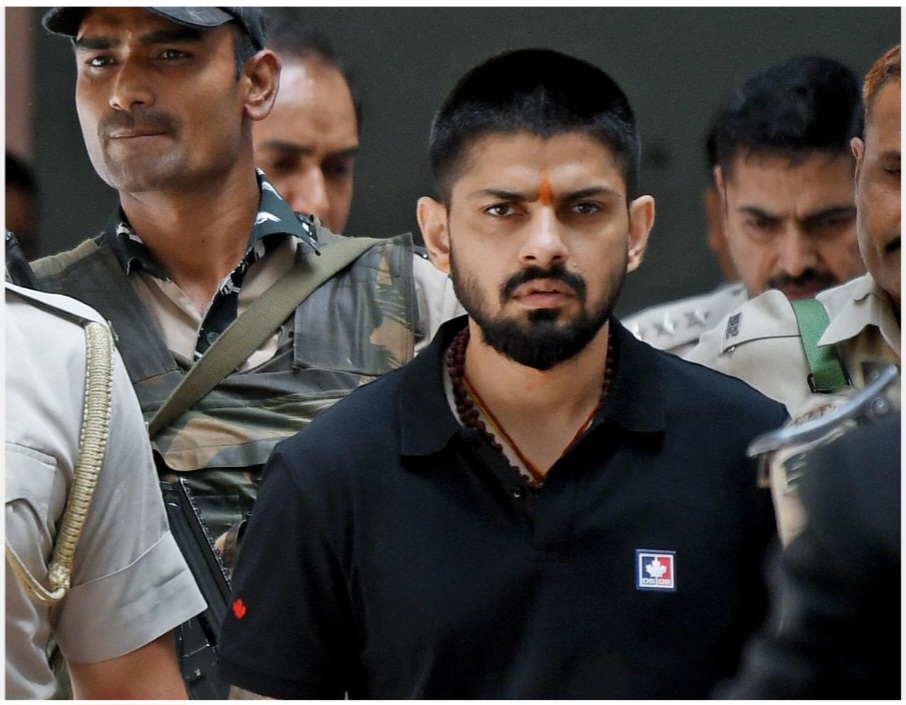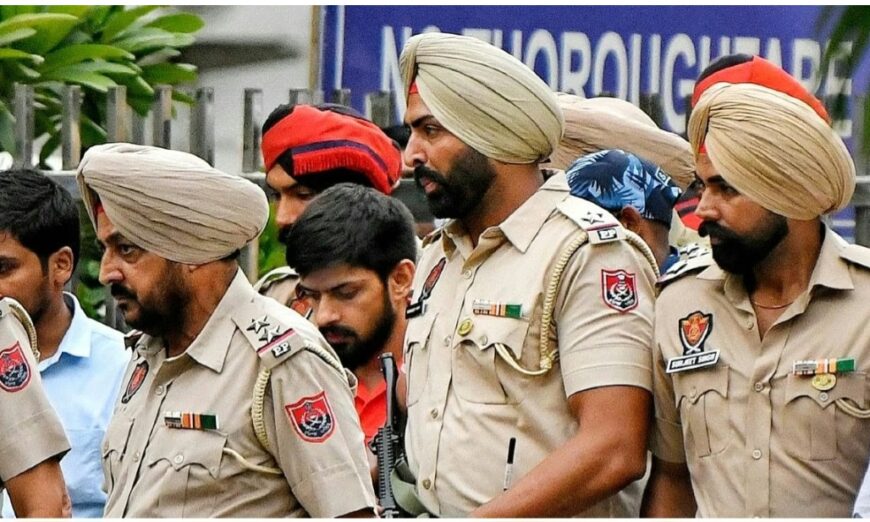Lawrence Bishnoi and his criminal network, implicated in murder, extortion, and arms and drug trafficking both in India and internationally, have been officially designated as a terrorist entity by the Canadian government, Minister of Public Safety Gary Anandasangaree announced on Monday, after calls from Conservative and NDP politicians.
“Specific communities have been targeted for terror, violence and intimidation by the Bishnoi Gang. Listing this group of criminal terrorists gives us more powerful and effective tools to confront and put a stop to their crimes,” Public Safety Minister Gary Anandasangaree said in a statement.
Announcing the decision, Public Safety Minister Gary Anandasangaree said acts of terror and intimidation have no place in Canada. “Groups that use fear, violence, and extortion to target communities must be held accountable,” he said.
Lawrence Bishnoi has been imprisoned in India for years, yet he is reportedly still orchestrating terror activities across international borders.
This designation allows Canadian authorities to freeze or seize any assets linked to the Bishnoi gang within Canada, including money, vehicles and property.
It also provides law enforcement with enhanced powers to pursue and prosecute gang members for a range of offences, especially those connected to the financing of terrorist activities.
Under Canadian law, it is a criminal offence to knowingly provide property or financial support to a listed terrorist group or to deal with its assets. The designation can also be used by immigration and border authorities to determine admissibility into Canada.
“The Bishnoi Gang is a transnational criminal organisation operating primarily out of India. They have a presence in Canada and are active in areas with significant diaspora communities.
This gang engages in murder, shootings and arson, and generates terror through extortion and intimidation,” the statement said, adding that the gang creates a climate of insecurity in these communities by targeting businesses, cultural figures and community leaders.
The government said the listing will support ongoing efforts by Canadian security, intelligence and law enforcement agencies to counter the gang’s activities.
With the listing, the Bishnoi Gang is now legally defined as a “terrorist group.” This allows Canadian authorities to freeze or seize its assets, prosecute members and supporters for terrorism-related offences, and crack down on activities such as financing, recruitment, and travel. It also makes it a criminal offence for anyone in Canada, or Canadians abroad, to provide property or resources to the gang.
Police and intelligence agencies will now have broader legal grounds to investigate, charge, and prosecute individuals connected to the gang. Under the Immigration and Refugee Protection Act, individuals associated with or supporting the Bishnoi Gang can be denied entry, deported, or declared inadmissible.
“Acts of violence and terror have no place in Canada, especially those that target specific communities to create a climate of fear and intimidation,” an official statement said. The development comes more than a week after National Security Advisor Ajit Doval and his Canadian counterpart Nathalie Drouin held wide-ranging talks in New Delhi.
During their talks, the two sides had agreed to adopt a collaborative approach towards a new chapter in bilateral ties, including working closely to combat terrorism and transnational crimes.
“Specific communities have been targeted for terror, violence and intimidation by the Bishnoi Gang. Listing this group of criminal terrorists gives us more powerful and effective tools to confront and put a stop to their crimes,” Public Safety Minister Gary Anandasangaree said on Monday (September 29, 2025).
With the addition of the Bishnoi Gang, there are now 88 terrorist entities listed under the Criminal Code in Canada.
A terrorist listing gives the federal government the power to freeze or seize property, vehicles and money, along with giving Canadian law enforcement additional tools to prosecute terrorist offences, including those related to financing, travel and recruitment, according to an official statement.


